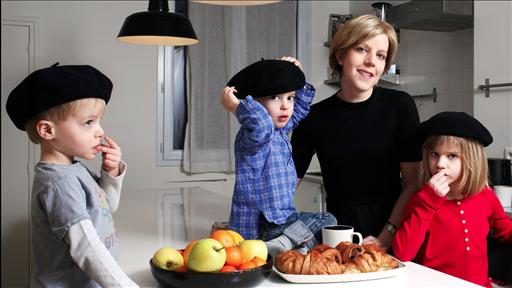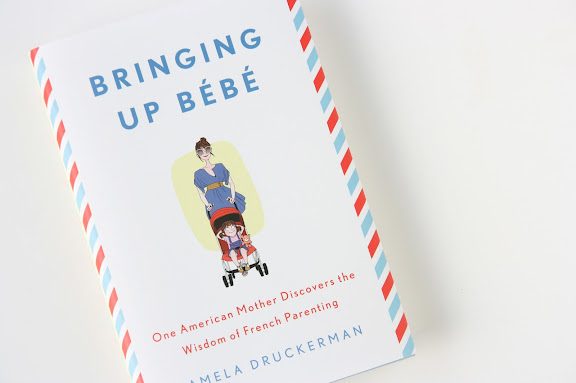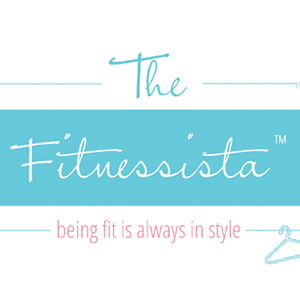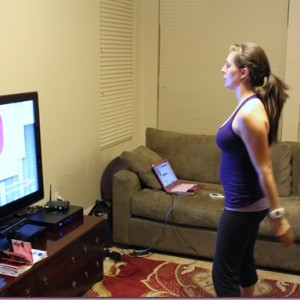Review: “Bringing Up Bebe”
It’s no secret that I love to read. It’s my favorite way to unwind at the end of the day -I try to go upstairs to read for 20 minutes or so before bed- and am usually reading an informational book and a fluff book at the same time. I like to think they balance each other out. Right now on the Kindle is “Fifty Shades of Lame” (I’ve pretty much given up on that one) and “Bringing Up Bebe,” which I loved.
(Source)
The story is about an American author, who moves to France with her family (husband and young daughter) in order to observe how the French raise their children. While dining in a restaurant, she’s amazed to see all of the French children are sitting patiently, waiting for their meal, while her two-year-old daughter screams and throws food. The difference between many American children and French children becomes obvious, and she’s determined to figure out what strategies French parents use to raise, calm, patient and polite children.
While I enjoyed the book, there were a few things I didn’t really agree with. While the clear purpose was to demonstrate the differences between French and American children and parenting tactics, the sweeping generalizations became a little annoying. Of course, there are always exceptions to the rule, and I’m sure there are foul-mouthed, impatient little French bullies, while the book almost made it seem like it’s never the case. Also, some of the examples weren’t measurable- more opinion than fact, as they were stated. Like, “French women do more work in the house but complain less than American women.” According to whom?
(Source)
Some of the things that really stuck with me:
1) The value of teaching patience and independence. I really liked an example of a little girl who was patiently making a cake while the mom did things around the house and the dad worked at his computer. There’s a recipe (which is printed in the book) that uses a yogurt container to measure all of the ingredients, so it’s easy for a small child to follow. I think it’s important for children to be able to entertain themselves- when I was young, I used to love coloring or reading on my own. The value of patience is stressed, which is why the author claims that many French children sleep through the night within a few weeks of being born. Instead of running in at the very first whimper, the mom waits a couple of minutes, and usually the baby will fall back asleep on their own. This was a HUGE mistake I made in the beginning. Livi slept in the bassinet next to our bed, and since I was so afraid she’d wake Tom up, I picked her up with every sound she made. Sometimes she was actually making sounds in her sleep, and when I quickly picked her up, it woke her. That’s why she wouldn’t get in a full feeding at night sometimes and wake up hungry an hour later. Hindsight is always 20/20, eh?
2) A healthy attitude towards real food and treats. At the French nurseries (similar to day cares, but government-subsidized), the children are given a 4-course meal with a salad, cheese course, entree (fish or chicken) and a dessert (like fruit). Every day, they have an afternoon snack, called the gouter, in which dessert is usually served. French children are encouraged to eat the same food as their parents (no pizza and chicken nugget “kids meals”) and get the opportunity to explore various ingredients. The author’s daughter goes to visit her grandmother in the United States, who is excited to make her some American food, and makes her Kraft macaroni and cheese. The child says “that’s not real cheese.”
I think this is interesting because I’ve heard that if you focus on whole foods, it helps the child to enjoy vegetables, and if offered processed food might not even like it.
3) The lack of mommy judgment. According to the author, if a mom decides to take her child to day care (it’s FREE, clean, staffed by professionals with years of experience), give her baby formula (which is more popular after the first few months) and go to work, it’s NDB. Most moms return to work within 4 months, and it makes it easy to continue her career with the high quality of day cares in France.
4) The history scattered through the book. In the 1800s in France, many poor working women would outsource wet nurses to feed their babies as they returned to work. The babies were transported by wagons and many died on the way there. The French needed a safer option for women to take their children, and also have the ability to breastfeed in between her shift, so the creches (nurseries/day cares) were born. The man who came up with the idea initially appealed to the wealthy to help finance the day cares. He convinced them that by contributing, their funds were directly affecting the economy by enabling more people to work. From there, the nurseries eventually became government-subsidized and the waiting list is LONG. The author said that the only thing similar to the French day cares in the United States are the CDCs (Child Development Centers) on base (which are pretty incredible).
5) No MILFs. The term “MILF” (or something similar) doesn’t exist in France, because it’s expected for the mom to return to her pre-baby sexy self within 4 months of giving birth. The only thing I didn’t like about this concept is the focus on “for the husband.” How about getting back in shape because it makes you feel good? The book also talked about post-birth vaginal therapy… for the husband’s pleasure. Interesting….
6) The focus on “education” instead of discipline. According to the author, French parents speak to their children with kindness, in a non-demeaning manner. Instead of focusing on the punishment for their actions, they focus on educating the child on why their actions were wrong. I think this is a fantastic idea and something I hope to do with Livi. There is also emphasis on the order of the family and fact that the parents are the ultimate decision-makers. A common phrase is “it’s me who decides.” The French are also apparently pros at making “the big eyes”: your warning to know you need to stop what you’re doing. I asked Tom to make “the big eyes” and he scared me a little. Livi’s going to know what’s up, haha.
While the first 3/4 of the book focuses pretty much on why the French are better parents -she doesn’t get into successful American parenting strategies until the end- I learned a lot from reading it. Of course, it’s nice to think and plan about how we’d like things to be, but I’ve really learned to just take it day by day and do the best we can.
I also look forward to the day when Livi and I can make a yogurt cake together 😉
Have you read any fantastic parenting books? Anything wacko?

















I don’t have kids, but it was really interesting to read your thoughts on this book. I studied in Paris for a semester during college, and I noticed a couple of interesting things about the kids – they really look like miniature versions of their parents in the way they’re dressed (which was adorable), and they were generally very well-behaved in museums. It definitely encouraged me to take my future children to museums and other educational activities, starting at a pretty young age.
PS While I was reading this post, John Mayer’s song “Something Like Olivia” came on my iTunes 🙂
looooooove that song 🙂
Like I need another reason to want to move to France! 😉 Thanks for sharing. I’ll have to check this book out.
I heard about the book and being French I am very interested to hear about your perspective. And yes, some French children are misbehaved too haha
For me the main difference I have observed after moving to Canada is that in France the emphasis is really put on “real”food. We don’t have a lot of food marketed to children like nuggets, hot dogs, yogurt in a pouch etc Children eat what they parents eat and I remember a lot of homemade snacks only served for “le gouter” after school. There is no snacking at all hours of the day.
Also French parents are big on fostering independence and on discipline. I love what you wrote about the pilot making the big eyes. I know that my Scotsman’s voice can be enough to scare any kid into being quiet haha And yes, parents having the last word is important.
Anyhow, you’re a lovely mother and you seem to be really down to earth so I’m sure you’ll do a great job with Liv (who by the way is getting cuter everyday)
This book sounds so interesting. My father was raised in France and I lived there as a teenager with a host family who had young children. There is something just generally more stern about the French – grownups and children alike. They’re more reserved than Americans are (especially in the north where I lived). These parenting strategies seem quite sophisticated – especially explaining things to children instead of just punishing them. It’s also interesting that our concept of childhood is really an invention of Victorian England – before that there were very few special books or meals for children – and I don’t think the French have that concept that children live in a different world from adults.
I’ve always wanted to move to Paris. Now I have several more reasons!
Another good book along these lines is French Kids Eat Everything. It is pretty much solely focused on the food aspect of things (no talk about vaginas or anything), I found it really interesting!
This is one of the books I plan on reading soon. I saw a clip about it on the Today show or something and it caught my eye. I liked reading your review though!
I don’t have kids yet but I am going to D/L this book – your review really clicked with me and what I think my parenting style will be.
Thanks!
a friend of mine is reading that right now – she doesn’t have children yet but she loves european culture. I read about this book in the WSJ and was intrigued, I definitely want to give it a read before hubs and i have the chill’ens 🙂 Thanks for the insight!
Reminds me a little of the book “French women don’t get fat”…. I have not read Bringing up Bebe, but I heard about it. I think one thing to remember is that French women are very elegant creatures, they would never go on (or talk about) a “diet”, and I think child raising is for them also an elegant affair (so, no raised voices and misbehaving children are only rewarded with a raised eyebrow).
I also think that French women assume that a) your body and b) making decisions about your children is private, and not up for public discussion (aka judging), so they keep it private and do what is right for them. Which, I think, is a good idea.
I was excited to see you posted your review of this; I finished it recently and enjoyed a lot about it!
I agree with you that I like the emphasis on teaching patience/waiting to kids, and also that their culture tends not to judge individual parenting choices. How REFRESHING is that?! (-;
Another thing I really loved (probably my favorite thing) is the emphasis on parents still getting to be adults, have their own time, be a couple and go out/foster the marriage/relationship……also the idea that “evenings are for grown ups.” Our older daughter is now 3 and we still put her to bed 99% of the time by 7:30 pm! It’s awesome! She doesn’t usually go to sleep right away, but she happily plays, sings, and winds down in her bed by herself because we have always done it this way. I HIGHLY recommend the early bedtime and sticking with it for the long haul!
Also agree with you about accidentally picking baby up too often in the early weeks/ months. I am sure I did this with our older daughter as well, and we ended up choosing to more formally sleep train her around 5-6 months. This time (we now have a 7 weeks old daughter as well), I am very much following “The Pause” in tending to our wee one. Already I think it is making a difference – she is showing some good abilities to put herself back to sleep so we just keep working on it! See, you can get it better the second time around, ha (-:
i also love the idea that night is for the adults. liv goes to bed early, too (by 7) and if we want to go out, the sitter comes around 7:15. the sitter doesn’t have to do anything, except for be here if livi wakes up or needs anything, and we can go have fun or just enjoy the night together
what time does your daughter wake up in the morning?
and that gives me hope about “the pause” later on! i’ll definitely be better at the whole sleep thing next go around
We did the exact same thing with our older girl! We’d have a grandparent or neighbor or teen babysitter “monitor sit” for her. All they had to do was hang out and make sure nothing went wrong while G slept. Perfect solution!
Georgia (our 3 yr old) wakes most mornings between 6:30-7 a.m. Another thing we started from early on is not getting her up or out of crib until 7 a.m. at least (barring illness or whatever). She was content to play/hang out/chat to herself until we came in. It’s very nice not to have to urgently respond to fussing or crying first thing in the morning (-:
Yeah, Lydia (7 wk old) already is getting rather skilled at putting herself to sleep for some naps and now we are really working on bedtimes since she is sleeping through the night already anyway (she started freakishly early at 5 wks, guess she wants to be French, ha!). Honestly, a few minutes of fussing following by soothing and trying again, amounts to a LOT less crying than true extinction CIO in my book. So we are starting now and hoping it’ll be a much smoother, easier, more gradual process. So far so good! (-:
yes, i like that idea too! we’ve been doing that with livi lately- sometimes she gets up at 5:30 and it’s way too early for me. she’s happily playing with her feet, so i’ll wait a while before i go in to get her. hopefully it will help her sleep a little later…
I read this book and really like it. As you said, the point of teaching patience and independence is so important. I don’t know much about american way of raising a child, but I really like her approach of being a woman first, then wife and mom. Even we become a mom, we should not sacrifice our identity. It might sound selfish, but I think it’s actually good for both the mother and the kid.
I love reading too, now that I’m 25 weeks pregnant, i’ve been reading more baby/parenting books. So if you find any good one, please share! 🙂
i loved that concept, too and totally agree with it.
can’t wait to see pics of your baby, coco! so excited for you
oh… I also like her view of eating real food, even when they’re babies, they should eat normal food with the adults. And then the Sunday baking routine that involves kids, I’d love to do that with my kids! 🙂
I have actually been reading “French Kids Eat Everything,” it sounds like a very similar book. Although I don’t have children, I feel like it is good preparation for when that day does come!
I can’t wait to read this book! My daughter is 15 months now and we’re getting to the point where both my husband and I need to work on “the big eyes!” and she is in a CDC here, I love it! It’s quite possibly the best benefit of being a miltary family!
Einstein Never Used Flashcards is a wonderful book…
What jumped out at me from your review of the book is that it (the book) sounds pretty astonishingly misogynistic: french women do more housework, but “complain less”? I agree with your assessment of this as an unsupported assertion. Second, your note about getting back to pre-baby weight/vaginal form “for the husband’s pleasure”. UGH. Talk about internalized oppression. I also take issue with this as a sweeping assertion that I know many French women would agree is overbroad and maybe just straight-up inaccurate. It sounds like the author needs to learn the difference between her perspective, developed within a particular context/class/geographic area, and empirical data, which would account for much more diversity in a sample. Paris, for example, is totally different in custom and culture from more rural parts of France, and I can guarantee that even if something were universally true among wealthy Parisian families, the same would not be true for a middle or working class family in Provence.
I was thinking the same thing about the fact that she wrote the book based on her experiences living in Paris. I mean… Paris is a pretty unique city in terms of affluence, education and refinement. It would be like a European moving to Beverly Hills and then feeling qualified to write a book about the American way of life. (Not that I’m directly comparing B.H. and Paris… just saying that neither are probably very accurate representations of the rest of the country).
I’ve heard of the book, but haven’t had a chance to read it yet. Will be an interesting read for sure!
One thing I do agree with is the idea that kids should eat what adults eat. I really don’t get the whole thing regarding ‘kids food’, other than smaller portions (and maybe not feeding my kid foie gras right away haha). I don’t know…it seems that North American culture seems to be ‘lets feed the kids fast and quick’, rather than spending time making and enjoying food. Some of the school lunches I’ve seen on Jamie Oliver’s school revolution made me sick!
Here are two books that I really enjoyed: “Raising Happy Kids” and “Nurture Shock”. Both are based on the science and both have some surprising findings. I’m an American, but I’ve lived in France and now live in Belgium. I agree that the concept of parenting is not the same, but it’s not nearly as black and white as it seems the author describes it in “Bringing up Bébé”.
Chiming in to agree: I LOVED Nurture Shock! That’s a great read, so intriguing, and it definitely challenges some common assumptions. I actually want to re-read it now that my oldest is getting to be preschool age!
TOTALLY unrelated to the book you read, but definitely wacko, and 100% engrossing: The Pyschopath Test.
http://www.amazon.com/The-Psychopath-Test-Journey-Industry/dp/1594485755/ref=sr_1_1?ie=UTF8&qid=1340053813&sr=8-1&keywords=psychopath+test
My family is completely American, but my mom is a Francophile and I went to an entirely French-speaking school for elementary school and used to spend summers there. I read Bringing Up Bebe a few months ago and was nodding along the entire time. I think the biggest difference between American and French families is that French kids are not the center of attention in the household- they’re expected to interact with and respect every adult they come in contact with. Instead of the parents living in the kid’s world, the kid lives in the parent’s. Funny enough, at my French school, I wasn’t really considered an especially well-behaved kid, but once I got into the American system for middle school, teachers were surprised by how obedient I was. And I’m definitely one of the least picky eaters I know. Funny how little cultural differences can have such a huge impact on the way we turn out!
While I like the idea of this book, I’m sure my kids are going to grow up in the loud and insanely crazy Italian household that I grew up in. I loved my childhood and appreciate the manner in which I was discpilined and will be doing the same for my kids.
My mom did, however, make all my baby food in a food mill at home, so we pretty much ate real food. She also cloth-diapered (God bless her soul, cuz the lady has 9 kids).
So I have always wondered what different parents think about this topic. Down south it is very common for people to use sir and maam (to parents as well) and mr and mrs but in the north it is almost considered an insult. I guess you could say its the level of politeness! Do you think that it is defferent for military families vs civilian families? Have you and Tom given any thought to the “level of politeness” that you would expect from Livi? Do you think that the way that you were brought up would influence the “level of politeness” decision? I have always been very interested in how other parents view this. Growing up in the north (from a civilian family) I would NEVER call anyone sir or maam and never mr or mrs unless they were a teacher or they asked to be called that. what are your thoughts? Anyone can feel free to put their input on it too!
that was a huge awakening for me when we moved to the south. my first day at work, i answered a question “yes” and the lady was like, “yes, WHAT?” and i said, “yes.. ma’am?”
before, i had always, always been offended when people called me ma’am. after 4 years of living in valdosta, i say it to everyone now
i have no idea what we’ll teach livi as far as that goes, but she’ll always say “hello,” “please” and “thank you”
Right. I have NEVER said yes maam. I have said it to a teacher a couple times but that lady was scary! nice but scary! I have always been taught to be respectful to my parents and other adults but I would never dream of saying yes sir or yes maam to my parents! It is so weird for me to hear my little cousins say yes maam and yes sir. I was in Florida visiting my cousin while was pregnant with her 2nd child to help with the oldest who was not even 2 at the time. When my nephew (technicaly cousin but he calls me auntie) dropped magnetts his mom said “pick those up” and said in his cute baby voice “yes” and she said “yes maam” and he repeted it. It was so weird. I have never heard a little baby say that! I guess everyone has their own view on it. So other random question, will you have Livi’s friends from school or your friends kids call you Gina or Mrs lastname? or ms. Gina? I am always curious.
I’m an early childhood teacher in Texas and in my classroom I suggest ma’am and sir. Down south it is considered polite and respectful to answer adults in this manner. However, I do not get offended or correct a child if I get a simple “yes”. The only time I have to put my foot down is when I get “yeah” or “yup”. It just doesn’t sound nice or respectful. I also do not like when I call on a child and I get “huh?”. I think the trend is slowly changing and younger parents are stressing new ways to show respect. For example, I always try to teach my kids to make eye contact when they are speaking with anyone (young or old). I always encourage hand shaking when they are first meeting a new friend or adult. Little ways to show you have respect for others. Boys are also taught to hold the door open for ladies (young or old). 🙂 Maybe this will help them somewhere down the road! Manners go a long way down here. Not everyone has them and you do tend to get turned off when a person does not know how to properly communicate with some sort of manners. 🙂
I think there’s a real North/South divide here. If you call someone ma’am where I’m from in CT, you might as well say – “Hey lady you’re super old and ugly!”. It’s a huge insult. Sir can kinda work, but people will know you’re probably not a local. In the North East, it can also be considered insulting or patronizing for a guy to hold open doors or pull out chairs, especially if they insist on it or refuse to let a woman open a door for them. I’m all for politeness and respect, but manners are a matter of social convention. I’ve lived in different states and a few different countries. I’ve had to learn whole new sets of “good manners”. I don’t know exactly what we’ll teach our kids, but I think it will have to involve a kind of politeness that has a flexible idea of manners.
I haven’t read this book. As a mom to two very young boys (2 and 10 days!) I like several of the ideas listed here. I may be alone in this, but so many French books may as well have a subtitle that reads “The French are better than Americans.”
I spent one summer in France before I was married and I was struck by how our cultures are diametrically opposed in so many ways. Comparing French culture and American culture really is an apples/oranges situation.
That’s a new book to me. Thanks for the detailed review and I’ve realized that parenting books are good to read, to be aware of methods and strategies but overall, it depends on the child, parent, how that dyad interacts, all based on situations and circumstances. What’s going to work for some won’t work for others type thinking…however, there are certain things that are absolutes and that all parents should figure out what their approach is going to be. Parenting..even talking about parenting…can be exhausting 🙂
One of my best friends is French and I’d say she has done parenting with ease and elegance. She has not done any of the usual ‘mummy stress’ at all. It’s quite something. Also, she didn’t even consider a natural childbirth or breastfeeding, which some would judge her for. I wish she would have loosened up a bit on the breastfeeding because her first child did suffer a lot with allergies and kidney colic (seems healthy now though), but no. When I suggested she might try it, she put her hand across her chest and said ‘I just don’t like the thought of a baby sucking on my boobs, those are for my husband’. I don’t know if this is a typical French attitude, based on my sample of n=1, but by taking out breastfeeding she definitely made things easier on herself. I also remember her emphasising that she wanted her first daughter to be without her sometimes to ‘learn that there is a world outside of mummy’s world’. Again, I don’t know if that’s typical French, or just her personal style.
i don’t have kids so i haven’t read this one, but your review brought me back to my opinions about French Women Don’t Get Fat. there were wayyyy too many generalizations about how (basically) all French women are perfect angels and all American women are fat slobs who have no idea how to take care of themselves. it really started to bother me and, though the concepts she tries to get across are good ones (portion control, allowing treats, savoring each taste, etc.) the constant “you people are stupid” attitude was too annoying to me. did you feel like that overshadowed most of this book, too? or, at least, did you read French Women Don’t Get Fat and did you feel similarly?
I just read “Beyond the Sling” by Mayim Bialik (Blossom). I did like a lot about it even thought we do nothing the same. She’s pretty whacko, but I love reading about other theories/styles. Look into it if you like her!
i have it on the kindle but have only read a little- definitely going to finish that next
This sounds so interesting! Thanks for the review! I’ll have to check it out.
Hi Gina,
Indian parenting style is similar to the french/ European style. Kids fit in the adult world and not the other way around. So no special kids food growing up; we ate the same meals our parents ate ( just not too spicy), we too had something similar to the afternoon snack, no all day snacking. And oh yes, we were given the ‘big eyes’ if ever things went out of control. Like every situation, there are always exceptions to every rule.
I think accepting ‘ no’ for an answer made us stronger, more patient and disciplined, instead of satisfying our every whim and fancy and spoiling us rotten. 🙂 just a humble opinion. 🙂
I’m reading ‘French Kids Eat Everything’ which sounds similar but is more food-slanted (why French kids eat/behave better than Americans). It’s fascinating, a perfect mix of insightful anecdote and stats/info.
As someone who has lived in France for 6 months, I can attest to the fact that French parents do discipline their children. And, sometimes rather harshly. I saw kids tapped angrily in the face and yelled at many a-times. It sounds like the author was making some rather sweeping generalizations – some French parents are rather cold and distant and tend to seem more disciplinary with boys, who are expected to goof off and disobey.
I was an aupair in France and I took so much away from my experience. They love their children dearly, but they never forget that they are women/wives/friends/etc. as well. Also, they include their kids in every activity and don´t really make a fuss about them.
I am antsy to read this book as well (I think I might download it tonight on my Nook) because I was raised in Russia and in a very similar fashion (except my parents were notorious yellers…that I could/would do without). I’ve been following a lot of these naturally, but I think there is a lot more that I could pick up or at least use a tactic rather than just my own intuition. The thing that I do get concerned about is what happens to those kids past toddler age. Does that book talk about that? I think a lot of the American tactics in child rearing, although might be painful during toddler-hood lead to some pretty spectacular, free-thinking, opinionated minds and I want to make sure that I don’t lose sight of what the long term affects are versus what is easier for me as a parent of a toddler.
Don’t be surprised if your best intentions for her eating wind up getting sidetracked by her preferences. Babies love most food. Kids get picky. Then you have the awful choice of forcing healthy food or letting them have the food they want, in moderation, in order to not cause food issues. I think most of us pick plan B. And then beat ourselves up when we see kids like on Peas and Thank You. Just a warning! LOL
hah good to know! i just want her to eat, grow and be healthy
I know I am a little late to comment on this post, but I did find it very interesting and just had a question about one of your comments. Number 3 comments on mommy judgement. Do you think French women lack good judgement because they use day care and go back to work full time?
no i think it’s amazing that they do what works best for them, without judging others. moms in the us are so open to judge and make rude comments about other families, while that doesn’t seem to be the case in france. each family does what works best for them without worrying about what anyone else is doing
I gotcha! I just complete misread that part, and was completely shocked, by what I THOUGHT I read. Sorry for the confusion. I wasn’t trying to “heckle” you in anyway. I love your blog and love reading about your adventures in life. My husband and I are discussing starting a family and you have definitely given me plenty to think about!
I LOVED this book! Many of the French “strategies” are ones I used on a daily basis with the baby I nannied for 2 years (just out of instinct), so I was very comfortable with just about everything in the book.
I recently read and wrote a review about the book on my blog as well. I really liked your review – very thorough! I felt pretty much the same as you. Every society has good points as well as negative points. I think our society has a lot to learn on the French’s good ones!! On the other hand, I am definitely an advocate for breastfeeding and natural labor. I also kinda agree with you about getting back into shape for Yourself and not your husband but I also think that we (american women) can very easily discount that very important part! Sex is a necessity in a marriage & the couples who never have sex after kids are now very happy with life. But, I also think that when you make yourself happy and your husband makes himself happy then you automatically are much better equipped to have a happy marriage and family.
I meant to type the couples who never have sex after kids are NOT very happy with life.
I had to read this book for a French culture class and I can’t say I like it very much. Almost all of the generalizations were hard to actually take in. I didn’t particularly trust her opinion because she was a new mom at the time who didn’t know very much and had a misbehaving child. Not only that I couldn’t tell where she even got her American generalizations. I know I’m from Boston and my parents believed a child was a child they stayed in a child’s place so they refused to make me like a little adult. They gave me rules and almost always told me no I had to earn it. Yes ma’am and yes sir as well as Mr. and Mrs. were a thing and we knew how to use all of them. We never were allowed to not speak to company. I only ate what was given during the schedule they created and didn’t have a choice unless I was sick. By those qualifications my parents taught like the French. But my parents were probably more strict than the French because the thought that French parents allow much freedom and trust for their child as long as they abide by their rules is something I never had. My parents trusted me but they still stayed suspicion and kept a leash they believed let a kid grow up too fast and they might miss the freedom of being an actual kid. And I don’t know but it didn’t sound like these kids were actually being kids for the most part. . .
Hi,
I’ve only just discovered your blog via Pinterest for your article on baby food (my son loves your oats recipe!), started going through the articles and felt like I had to comment on this one. 😉
I was born and raised French, in France, from French parents, moved to Australia and had a gorgeous son 8 months ago with my Australian fiancé. I am also a linguist and teacher, specialised on bilingualism, so I’m always very interested in hearing about cultural differences, especially when it comes to kids.
I read this book a few months ago and also quite liked it. I mean, it is full of generalisations (like a lot of things we can read these days) and yes, French people are GENERALLY not very fond of Americans, but from my perspective, she’s got it mostly right.
French children are treated mostly like little adults and are expected to be quite independent. No sugar coating in teachers’ comments of their skills for example (which I had to learn when I started teaching in Australia…). The “no-snacking-between-meals” rule is also a very important part of our upbringing. It might seem quite strict, and it is sometimes taken to extremes (particularly in Paris, where everything is taken into extremes compared to the “province”, the rest of France).
I have been judged by my family a fair bit for still breastfeeding 8 months on. As someone mentioned in the comment, it’s not a very common thing to do, as breasts are more for your partner and you’re expected to “take your life back” as soon as you can. It was actually interesting to see that the medical recommendations are even different. In Australia, they say if you can breastfeeding at least 6 months, even 1 year, it’s the best option; in France, it’s maybe 3 months, maximum 6 (of course, not all professionals agree on that either).
Anyway, I’m trying to do things my way, taking from both Australian and French educational concepts what suits us best. I just wanted to confirm that it is in fact, not very far from the truth…
(I’ll be starting a blog soon too on motherhood, crafts and language 😉 )
hi, and welcome to the blog 🙂 thank you so much for saying hi!
i really enjoyed reading your comment and about your experiences. please let me know when you start your blog so i can check it out!
xo